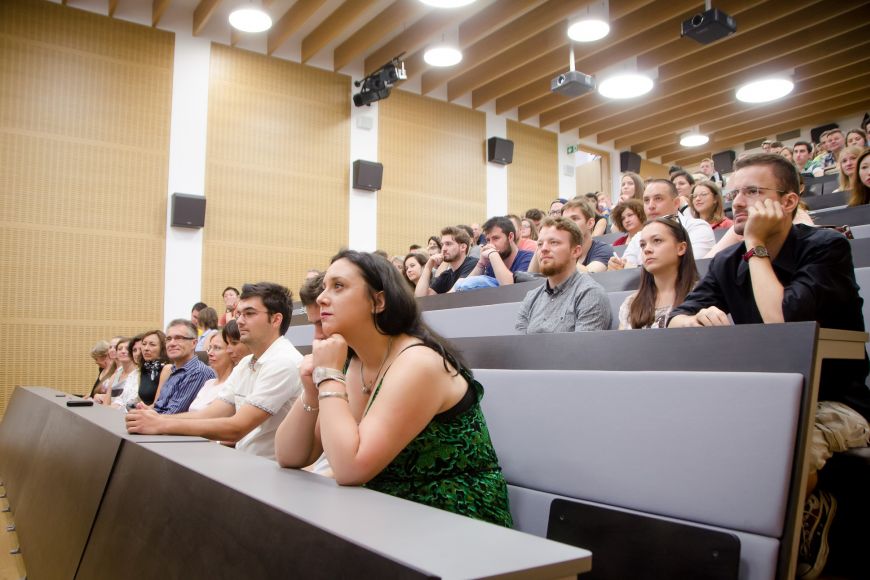Over 130 students from 38 countries have decided to forgo holidays and free time and study Czech instead. The Summer School of Slavonic Studies, established in 1967 by the Department of Czech for Foreigners at the Faculty of Arts, Masaryk University, started in mid July. Eighty-four participants obtained a grant from the Ministry of Education for the 4-week study of Czech.
Students at the summer school attend a varied programme: every day from Monday to Saturday, they attend intensive courses of Czech in the morning and other lectures and seminars in the afternoon. In the evening, they go and see Czech films or take part in dance lessons. During the summer school, they will also visit Prague, the Moravian Karst, the Tugendhat villa, or the microbrewery in Bratčice.

At first, the students have taken an admission test that placed them into ten groups depending on their language skills: from beginners and pre-intermediate to intermediate students.
“There are also forty students from Slavic countries attending the summer school. While they are the quickest when it comes to the initial stages of language learning, they are, paradoxically, surpassed by Italians or Americans when they get to the pre-intermediate stage, as those students don’t have to struggle with small nuances among the Slavic languages,” says Eva Rusínová, the director of the Summer School and the head of the Division of Czech for Foreigners.
“The Summer School of Slavonic Studies in Brno is very popular. We really appreciate the huge interest of foreigners in our country, language and culture. There is no reason to be afraid of Czech, it not considered to be one of the ten most difficult languages in the world,“ says Ladislav Bánovec, the director of the Department of International Relations of the Ministry of Education, who welcomed students from all over the world during the opening ceremony.

This year’s 49th Summer School attracted students of all ages: the youngest participant is 13 and the oldest 63 years old. Among the students of the Summer School of Slavonic Studies is also Samara Ortega from Mexico, who studied in Brno as an Erasmus student a year ago. “I came back to Brno for the Summer School, because Czech is a beautiful language and I would like to learn it,” she explains.
Besides lecturers, students are also taken care of by guides. One of them is Nemanja Pajović, a Serb who took part in the Summer School two years ago as a student. “It was a great experience,” Pajović says. “I learned a lot and I decided to continue in my Czech studies – I have already finished the first semester of my master’s studies in Czech language and literature.”